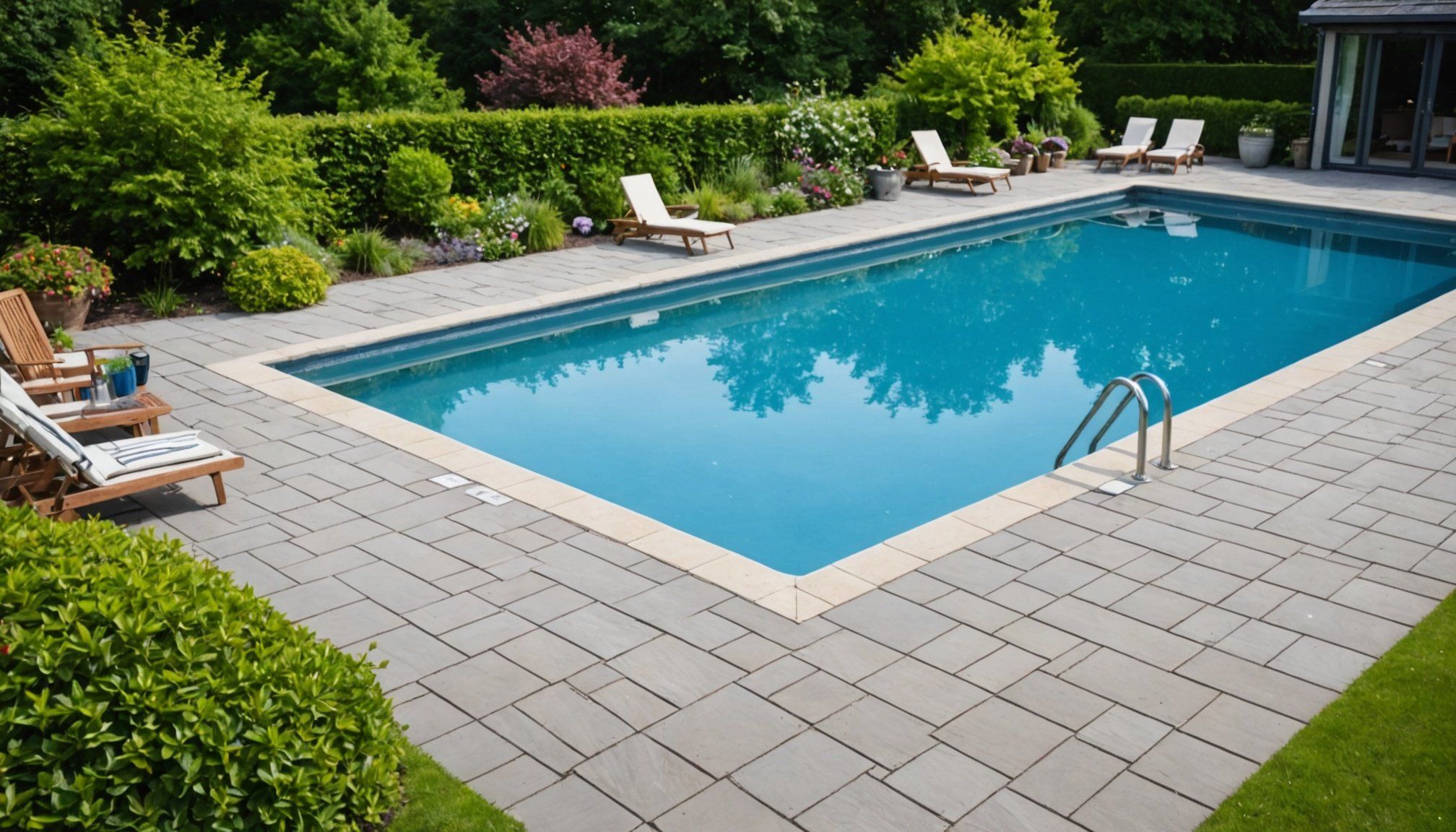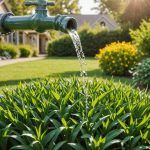Common Pool Care Blunders
Owning a pool is a luxury enjoyed by many in the UK, but pool maintenance mistakes are surprisingly common. Doing so can cost homeowners time, money, and potentially even lead to safety hazards.
One of the most prevalent common errors in pool care includes not maintaining the correct chemical balance. Incorrect pH levels can cause skin irritation and reduce the effectiveness of sanitising agents. Likewise, overlooking filter maintenance can lead to poor water circulation, allowing algae and bacteria to thrive.
Also to discover : Exploring the Benefits of Adding a Pool House to Your UK Swimming Pool Retreat
Being unaware of these pool care blunders UK can compromise pool health and safety. For instance, neglecting to cover the pool when not in use can lead to debris accumulation, making the pool unsafe and unsightly.
Awareness and education in pool maintenance are critical to prevent these blunders. Homeowners should regularly test the water quality and ensure their equipment operates efficiently. Educating oneself on correct procedures can help save on potential costs and ensure a safe swimming environment for everyone. By staying informed, pool owners can maintain not just the aesthetic appeal but also the functional integrity of their pools.
Also to see : Revitalize Your UK Home”s Forgotten Swimming Pool: Key Steps to a Stunning Comeback
Neglecting Water Testing
Understanding the importance of chemical testing in maintaining a healthy and safe swimming pool cannot be overstated. Adequate and regular testing helps in maintaining the pool water balance, ensuring a pleasant and safe experience.
Recommended Testing Schedule
A consistent water testing frequency is crucial. It is suggested to test your pool’s pH and chlorine levels at least twice a week, increasing frequency during peak swim season or periods of heavy rain. In the UK, where weather fluctuation is common, testing might be needed more often to maintain balance.
Tools Needed for Accurate Testing
The tools for testing pool water vary, but reliable and accurate kits are essential. Popular home testing kits include liquid testing kits and test strips. While liquid kits are generally more accurate, test strips are convenient and easy to use.
Common Misconceptions About Water Testing
A common misconception is that once a pool’s chemical levels are balanced, they remain stable. In reality, factors like weather, usage, and debris can quickly alter the pool’s chemistry. Therefore, regular testing is crucial to manage the importance of chemical testing properly. Understanding these factors can help pool owners maintain balance and prevent discomfort or damage.
Improper Cleaning Techniques
Understanding the implications of improper pool cleaning is crucial for maintaining a healthy swimming environment. It’s not just about keeping the water clear but ensuring the longevity of your pool’s structure and systems.
Tools for Effective Cleaning
An integral part of effective pool maintenance involves using the right tools. Skimmers, brushes, and vacuums are essential; each plays a specific role. Skimmers are used to remove floating debris like leaves and bugs. Brushes help eliminate algae and stains from pool walls, while vacuums clear the pool floor of sediment build-up.
Seasonal Cleaning Protocols
POOL CLEANING METHODS should adapt with the seasons. For instance, in autumn, when leaves and other debris are more prevalent, increase the frequency of skimming. Winterisation processes are necessary in colder climates to prevent pipe damage and maintain water quality through the winter months.
Avoiding Damage During Cleaning
To prevent damage to pool surfaces and equipment while cleaning, be mindful of the force applied with brushes and vacuums. Using brushes that are too stiff can scratch surfaces, while excessive vacuuming may strain the pump system. Regularly inspect and maintain cleaning tools to ensure effectiveness and prevent unintended harm to your pool.
Ignoring Filtration System Care
Neglecting filtration system maintenance can significantly affect your pool’s health. Recognising common signs and implementing regular maintenance can avert potential issues.
Signs of a Failing Filtration System
Be alert for signs indicating problems with your filtration system. These include reduced water clarity, increased algae growth, or strange noises from the filter. Such symptoms suggest your system struggles to maintain the pool’s cleanliness. Immediate pump care tips can prevent further complications.
Regular Maintenance Guidelines
Adhering to consistent pump care tips extends your filtration system’s life. Routinely check for visible damage or wear. Clean the filter according to the manufacturer’s instructions to maximise performance. Ensure all components function correctly; this reduces the likelihood of costly repairs.
Common Mistakes with Filters
Avoid common pool filter errors by recognising signs of wear. Replace filters when they lose efficiency to maintain water quality. Neglecting this can compromise pool conditions. Moreover, regular maintenance tasks such as cleaning elements, monitoring pressure gauge readings, and periodic professional inspections are critical yet frequently overlooked aspects. Addressing these will ensure longevity and effectiveness.
Inadequate Heating Management
Managing pool heating effectively can be challenging, and missteps can lead to discomfort or higher energy costs. Avoid pool heating mistakes by focussing on proper temperature control for comfort and safety.
Best Practices for Heating Pools
Proper temperature control is crucial for a pleasant swimming experience. Aim to keep the pool water between 26°C and 28°C, adjusting slightly depending on the weather. Install a reliable thermostat to monitor the pool’s temperature accurately.
Energy Efficiency Tips
Adopting energy-efficient practices can reduce costs significantly. Invest in modern heating solutions available in the UK, such as solar covers or energy-efficient pumps. These not only conserve energy but also maintain consistent temperatures.
Seasonal Considerations for Heating
Adapt your pool heating strategy with the changing seasons. In winter, cover the pool to retain heat and consider windbreaks, which can help keep the water warm. During summer, careful temperature control can prevent overheating, reducing the risk of hypothermia when transitioning from hot to cooler water.
These practices ensure your pool stays comfortable year-round while minimising energy usage and costs.
Failing to Properly Winterize a Pool
For pool owners in the UK, winterizing pools is crucial to ensure your pool care in winter is efficient and prevents damage. By taking the correct steps, you can prevent costly repairs when spring arrives.
Essential Winterizing Steps
To start, a detailed checklist can guide you through successfully preparing your pool. Begin by cleaning the pool thoroughly, balancing the water chemistry, and adding a winterizing chemical kit to inhibit algae growth. Lower the water level and drain all equipment to avoid freezing. Finally, securely cover the pool to shield it from debris and harsh weather conditions.
Common Winterization Mistakes
Some owners neglect seasonal maintenance tips, such as failing to drain water lines or not covering the pool adequately. These errors can lead to cracked pipes and polluted water. Overlooking the removal of accessories like ladders and diving boards can also cause damage.
Tools for Successful Winterization
Investing in reliable tools is essential for effective winterization. A pool skimmer, vacuum, and high-quality pool cover are vital. A pump and antifreeze specifically designed for pools can prevent freezing damage. These products and simple steps ensure your pool withstands the harsh winter months, saving you time and money.
Lack of Educating on Local Regulations
Navigating the pool regulations UK can be complex, yet essential for any pool owner. It’s critical to comprehend local laws that dictate how pools should be built and maintained.
Understanding Local Regulations
Understanding local regulations begins with identifying key policies governing pool ownership in the UK. These rules ensure that pools are legally compliant, protecting both the owners and the public.
Importance of Compliance
Adhering to legal pool maintenance ensures safety and longevity of the facility. Regular updates from local authorities help keep pool owners informed about modifications in law, underscoring how vital it is to remain updated with these changes.
Consequences of Ignoring Regulations
Ignoring local regulations can lead to severe consequences. Potential fines for non-compliance can be hefty, and safety risks are ever-present without proper legal oversight. Knowingly bypassing these regulations not only endangers lives but can also result in significant legal repercussions for the pool owner.
Seeking Professional Help vs DIY Maintenance
When it comes to pool maintenance, choosing between professional pool services and DIY pool care can be a tough decision. The choice is often influenced by personal preferences, budget, and the pool’s condition.
Benefits of Professional Services
Professional pool services ensure thorough cleaning and maintenance using industry-grade equipment and experienced technicians. They offer regular checks for proper chemical balance, preventing long-term damage. Additionally, hiring an expert provides convenience and peace of mind, as they can identify and resolve issues that might go unnoticed by a less trained eye.
Recognizing When to DIY
DIY pool care can be a viable option for pool owners willing to invest time and effort. Basic tasks such as skimming leaves, monitoring chlorine levels, and maintaining the pool filter can often be managed independently. However, understanding the pool’s specific needs and ensuring safety is critical.
Cost Comparisons
While professional pool services come with a higher upfront cost, they may reduce long-term expenses by preventing damage and extending the life of your pool. Conversely, DIY pool care potentially lowers immediate costs, but any oversight can lead to expensive repairs.
Comparing both approaches requires evaluating situations where hiring a professional is advisable, such as handling complex repairs or chemical adjustments, to ensure the pool remains in top condition year-round.
Common Pool Care Mistakes Made by UK Homeowners
Pool care mistakes among UK homeowners can lead to costly repairs and compromised enjoyment. A prevalent error is neglecting routine maintenance. Without consistent attention, pools can become breeding grounds for algae and bacteria, diminishing water quality and increasing the risk of health hazards.
Seasonal considerations are crucial in the UK, where climate fluctuations require different maintenance strategies. During cooler months, homeowners often overlook the importance of winterising their pools. This oversight can lead to freezing damage, affecting pipes and equipment. Conversely, in warmer seasons, failing to adjust chemical levels to counter increased usage and evaporation can lead to imbalanced water chemistry and unsanitary conditions.
Another common mistake involves misunderstanding filtration systems. Pool owners frequently underestimate the hours a filtration system needs to run, leading to inadequate cleaning cycles. Proper filtration plays a crucial role in maintaining clear, debris-free water.
Being aware of these pool maintenance errors and adopting a proactive approach can significantly extend a pool’s lifespan while ensuring it remains a safe and pleasant environment. Homeowners should consider regular professional checks to catch issues early and keep their pools in peak condition.
Improper Chemical Balance
Maintaining the proper chemical imbalance in pool water is crucial for safety and equipment longevity. The pool water chemistry must be carefully monitored to ensure optimal conditions. Ensuring the correct pH and chlorine levels is vital—pH should remain between 7.2 and 7.8, while chlorine levels typically range from 1 to 3 ppm.
Inadequate water quality management can result in various issues, including skin and eye irritation, harmful bacteria growth, and damage to pool equipment. For instance, low pH levels can lead to corrosion, while high pH may cause scaling and cloudy water.
To manage pool chemistry effectively, using testing kits regularly is recommended. These kits allow pool owners to monitor and adjust chemical levels accurately. Industry experts suggest using reliable test kits or strips that measure pH and chlorine to ensure precise evaluations. Consistent testing and adjustment will safeguard swimmers and maintain your pool’s condition.
Adherence to expert guidelines for balancing chemicals ensures a safe swimming environment and extends the life of pool components. Addressing chemical imbalance promptly protects swimmers and enhances their overall experience, encouraging worry-free enjoyment of the pool.
Inadequate Filtration and Circulation
Proper pool filtration and water circulation are essential components for maintaining a clean and healthy swimming environment. The filtration system works tirelessly to remove debris, algae, and other contaminants from the water, ensuring clear visibility and a sanitary pool. Equipment maintenance is key to its efficiency.
When water circulation is inadequate, several issues can arise. Stagnant water can lead to algae growth, increased bacterial presence, and uneven distribution of chemicals. Additionally, inadequate flow can cause the filtration system to work harder, leading to quicker wear and potential failures.
To optimise filtration and improve water circulation:
- Ensure regular equipment maintenance. Check filters and pumps for blockages or malfunctions.
- Clean filters routinely to maintain their capacity to trap debris effectively.
- Position return jets correctly to circulate water thoroughly throughout the pool.
- Consider using additional water circulation tools, like booster pumps or automatic pool cleaners, to enhance the movement within the pool.
By addressing these factors, the efficiency of your pool’s filtration system will improve, resulting in safer, cleaner water and a better swimming experience.
Neglecting Regular Cleaning
Neglecting regular pool cleaning is a common issue faced by UK homeowners, particularly given the range of debris types that can accumulate. Typical debris found in pools includes leaves, insects, dust, and sometimes algae. These not only affect the pool’s aesthetics but can also disrupt the debris management system.
Failure to maintain a effective maintenance routine can lead to consequences that impact pool usability. Accumulated debris can clog filters and create a breeding ground for bacteria, resulting in cloudy or unsafe swimming conditions. This can make the pool less inviting and even pose health risks to swimmers.
To avoid these issues, establishing a reliable cleaning schedule is crucial. UK homeowners are advised to skim the surface of their pools at least twice a week to remove floating debris. Additionally, brushing the pool walls and vacuuming the bottom every fortnight helps in maintaining clarity. Employing efficient filtration systems, alongside regular cleaning, ensures that the water remains clear.
Adopting a structured maintenance routine not only keeps the water pristine but also extends the lifespan of your pool equipment. Consistency in cleaning promotes a healthier swimming environment and enhances enjoyment for users.
Overlooking Equipment Maintenance
Neglecting pool equipment care can lead to costly repairs and decreased system performance. It’s crucial to regularly check essential equipment types. This includes the filter, pump, and heater. The filter should be inspected for debris build-up. Regular cleaning maintains efficiency. Pumps should run smoothly, without unusual noises. Heaters require monitoring for temperature accuracy. These measures are simple yet effective.
Common mistakes in equipment upkeep involve skipping cleaning schedules and ignoring subtle warning signs like strange noises. Dust and debris accumulation can hinder performance. Unfamiliar sounds often indicate mechanical issues needing immediate attention. A disregard for these elements accelerates wear and tear.
Taking advantage of professional services is a reliable approach. Many offer seasonal maintenance packages, checking all components meticulously. Professionals have advanced tools and expertise to detect problems early.
Meanwhile, a DIY route is possible with maintenance tips. Regular lubrication of moving parts and scheduled cleaning are basic tasks. This not only keeps the equipment in top shape but also educates pool owners on system functionality. By either engaging professionals or adopting a DIY strategy, prolonging the lifespan of your pool equipment becomes achievable.
Ignoring Safety Measures
Incorporating essential pool safety measures can significantly mitigate risks. Every pool should have critical safety features, such as secure fencing and pool covers, to prevent accidental falls. Ensuring compliant gate latches and alarms can further enhance safety. These features act as crucial barriers, especially for homes with children, reducing risk considerably.
However, many UK homeowners often overlook basic safety protocols. A common safety blunder includes neglecting regular maintenance of safety equipment. Worn-out latches or malfunctioning alarms can lead to preventable accidents. Furthermore, inadequate supervision during pool use poses significant risks, especially when children are involved.
To improve hazard prevention, it is vital to implement effective strategies that cater to the needs of all pool users. These include regular safety drills and providing swimming lessons, ensuring that everyone is familiar with safety protocols. Educating children about pool rules and encouraging responsible behaviour is fundamental to risk management. Additionally, having a designated supervisor or lifeguard during pool activities can greatly decrease accident potential.
By addressing these areas, homeowners can create a safer swimming environment for everyone, emphasising the importance of maintaining and respecting safety measures at all times.
Seasonal Pool Care Adjustments
Maintaining a pool throughout different seasons requires specific adjustments to ensure longevity and usability. Seasonal maintenance begins with preparing your pool for the colder months through pool winterization. This involves cleaning the pool thoroughly, balancing the water chemistry, and ensuring all equipment is properly stored or covered to prevent damage from freezing temperatures. Covering the pool with a durable cover is crucial in the UK’s climate, to protect it from debris and harsh weather conditions.
When the weather starts warming up, focus shifts to summer readiness. Begin by removing the pool cover and cleaning it for storage. Refill the pool to the appropriate level if needed and ensure the filtration system is in working order. Balancing the water chemistry is crucial, particularly checking chlorine and pH levels, to create a safe and pleasant swimming environment.
The local climate plays a significant role in determining these seasonal maintenance routines. In regions with milder winters, less intensive pool winterization is needed, while areas with harsher winters require more thorough protection. Conversely, hotter climates might demand more frequent summer readiness checks to ensure the pool remains in optimal condition throughout the swimming season.
Seeking Professional Help
Hiring professional pool services offers numerous benefits, especially if you lack the time or expertise for effective pool maintenance. Professionals provide comprehensive care, ensuring the pool’s cleanliness and chemical balance, which ultimately prolongs the pool’s lifespan. Opting for expert advice means you gain access to their extensive knowledge of local pool maintenance needs, from regulation adherence to climate considerations.
When choosing a pool maintenance company in the UK, it’s crucial to evaluate their reputation. Start by checking online reviews and asking for recommendations from friends or family. Reputable companies will have a trail of satisfied customers and be more than willing to answer any queries you might have. Ensure they are certified and fully insured to avoid liability issues.
Understanding when to call for expert intervention is essential. Consider professional help if your pool develops persistent problems, such as algae blooms or cloudy water, despite regular maintenance routines. DIY solutions can be cost-effective but may not always provide lasting results. Experts can diagnose complex issues swiftly, saving time and potentially costly repairs. Balancing DIY initiatives with expert involvement helps in maintaining a healthy, safe swimming environment.











